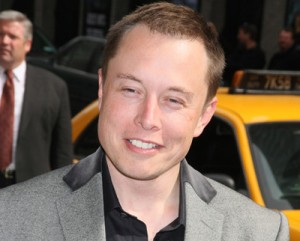One thing about Tesla founder Elon Musk: he is nothing if not ambitious. And with his battery-electric company expected to report its first-ever profit for the January-to-March quarter, the entrepreneur is already looking how to keep his business expanding.
That could include the addition of a second plant, possibly in Texas, Musk says. He also is hinting that Tesla is considering the idea of a battery-powered pickup truck. Musk made those comments during a visit to the Lone Star state where Tesla has gotten embroiled in a battle over its bid to revise state franchising laws to sell vehicles directly to consumers.
Musk has been much in the news in recent weeks, first signaling that sales this year have exceeded initial expectations – pushing Tesla into the black after unexpectedly deep losses for 2012 – and then announcing a new finance program designed to combine the best attributes of a loan and a lease.
He followed that up a few days ago by declaring that Tesla Model S owners will not just get any old car off the shop floor when they come in for service but will be treated to the maker’s most expensive electric vehicle until service or repairs are completed.
With his tendency to express whatever is on his mind – in an interview or through a Twitter feed – Musk has clearly decided to revise the automotive business model. But that doesn’t mean everyone is willing to go along.
He is, in fact, just the latest of many executives who have hoped to challenge the long and deeply established automotive franchise system. During his visit to Texas, he proclaimed Tesla would invest “tens of millions of dollars” in more showrooms and service facilities, during an interview with Automotive News, and create 100s of new jobs. But getting the state legislature to revise the strict franchise system is clearly an uphill battle – especially with the opposition of the powerful Texas Automobile Dealers Association.
But, as Musk proved when he launched a high-profile – and largely successful – battle against the New York Times over a negative review earlier this year, he doesn’t give up easily. And he’s got a wallet he can use to back his own demands.
It appears he is hoping that Texas lawmakers might be swayed by the idea of getting a new, high-tech assembly plant if they play ball with Tesla.
“When we do establish a manufacturing plant outside of California, Texas would be a leading candidate for that,” he said, dangling a very large carrot.
Of course, even at the planned pace of production for the Model S sedan – and the Model X crossover coming in 2014 – there remains massive amounts of excess capacity at Tesla’s current assembly plant in Fremont, California. That facility used to roll out 100s of thousands of vehicles annually when it operated as a joint venture between Toyota and General Motors, known as NUMMI.
So, timelines for a second plant were not something Musk revealed.
He did, however, float the idea of a “really cool” battery pickup, which he suggested would have “the performance of a sports car but actually more towing power and more carrying capacity than a gasoline or diesel truck of comparable size.”
And that, he said, might justify a second plant – in Texas.


I think trucks are a great idea for electric vehicles, but pick ups seem a strange choice. Mr. Musk suggests they will have great towing capabilities…which they will because electric motors develop maximum torque at stall, but most pick ups that are towing something are going too far for the batteries range…and in many cases there will not be a place to charge them when they are away.
The logical electric truck would be light and medium duty trucks with high cube bodies and in city delivery applications. These trucks as used by UPS, FEDEX, USPS, and many other businesses have lots of room under the floor for batteries, do not carry heavy loads (typically the cube out before they gross out), operate a relatively compact route in heavy traffic where air pollution is the heaviest, and return home each night to the same garage so they can easily be recharged. This is the perfect electric application. Much better than a pick up truck. Strangely, this market seems way under-served…
A battery powered truck where you could have a large battery capacity and run time would be OK for those who do deliveries just in the city – such as perhaps some of UPS’s fleet or similar. Without being able to make a lot of starts and last at least 12 hours under all conditions such as Winter weather which drains batteries or desert heat which can fry batteries, the potential sales would be quite limited IMO.